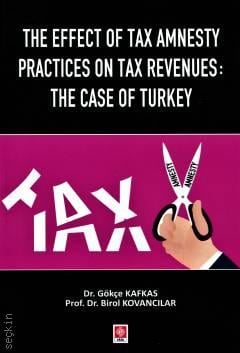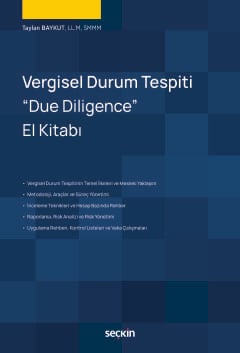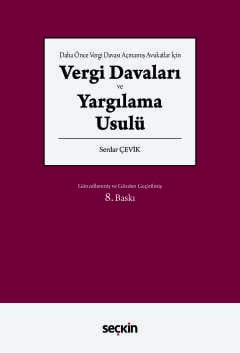>
Hukuk Kitapları>
Vergi Hukuku>
The Effect of Tax Amnesty Practices on Tax Revenues The Case of Turkey

The Effect of Tax Amnesty Practices on Tax Revenues The Case of Turkey
1. Baskı,
Aralık 2022
Kitabın Detayları
Dili:
İngilizce
Ebat:
17x25
Sayfa Sayısı:
101
Kitabın Fiyatı:
200,00₺
Temin süresi 2-3 gündür.
Kitabın Açıklaması
In a sense, tax is another name for the main source of financing that the state has to transfer to both the public and private sectors in order to cover the expenses of the public services it produces. Therefore, if citizens in a country want public needs to be fulfilled by the state, it is imperative that the state in question collects tax revenues.
However, at some times and/or in some cases, through legal regulations, states may not collect their tax receivables in wholein part from their citizens who do not fulfill these obligations. At the beginning of these regulations, vvhich are supported by legal bases, tax amnesty applications come. However, ali these non-normal arrangements other than payment, vvhich states have resorted to in order to reach reconciliation vvith their citizens and to protect them from financial burden during economically difficult periods, unfortunately cause decreases in the revenues of states.
Therefore, in this study, the tax amnesty practice, vvhich is one of the elements that eliminate tax debts/receivables and penalties and vvhich is frequently applied in Turkey, vvas emphasized and the effects of this practice, vvhich is constantly discussed but persistently used on the grounds that it disrupts tax justice, vvere tried to be examined on tax revenues.
Kitabın Konu Başlıkları

General Information on The Concept of Tax Amnesty

Reasons for Applying Tax Amnesties

Opinions on Tax Amnesty

Factors Affecting The Success of Tax Amnesties

Practiced Tax Amnesties in Turkey

The Effect of Tax Amnesties on Tax Revenues in Turkey: Empirical Analysis
Kitapla İlgili Kategoriler
Kitabın Fiyatı:
200,00₺
Temin süresi 2-3 gündür.
Hakkımızda
|
Uluslararası Yayınevi Belgesi|
Kaynakça Dosyası|
Kişisel Verilerin Korunması |
Üyelik|
Siparişlerim|
İade Politikası|
İletişim


